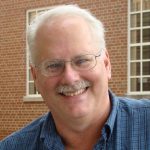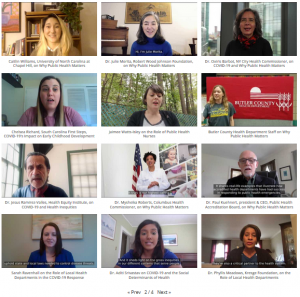Since arriving in the US three months ago, the novel coronavirus has been posing huge threats at every turn.
Countries, cities, communities, organizations, families and individuals around the world are dealing with the evolving impacts and challenges of COVID-19 months after the novel coronavirus was identified.
Related Posts
At UNC-Chapel Hill, most of us have been working, teaching and studying remotely for more than a month now, and the question of when we’ll be able to return to campus depends on the success of efforts to mitigate the virus (including social distancing, testing for infection and serological testing for antibodies) and how policymakers respond.
In the Gillings School—as in other places where people are focused on public health—we recognize this as a global public health moment of unprecedented scale in recent history, with far-reaching impact on people’s lives—including physical, mental and financial health and well-being—and with significant implications for social, economic and health equity. The pandemic very quickly becomes personal as its tolls are added up. Locally, we are concerned about supporting our many students, faculty members and staff members—and their family members and colleagues—who are working on the front lines in public health, medicine and related health care fields.
Some of our students are unable to return to their home countries, and many have lost opportunities for paid summer research positions, internships and practica. To provide financial assistance to Gillings School students who are struggling to pay for housing, food, health insurance and other essentials, my husband and I have joined others in giving to the Gillings Student Relief Fund.
We also are worried about the small businesses that are being shuttered in our communities and around the world, and the many people who are losing their livelihoods and, in some cases, their lives. We have identified some small businesses we are committed to support. We want them to be in business when this is over. Chapel Hill small businesses, like many others, are really struggling. They must pay rent even when they can’t operate.
A public health moment

Ralph S. Baric, PhD, W. R. Kenan, Jr. Distinguished Professor of Epidemiology and professor of Microbiology and Immunology, is a global leader in coronavirus research. The Baric Lab team has been working tirelessly on antiviral treatments for COVID-19.
Our Faculty Experts page gives brief highlights of amazing work being done at Gillings. Faculty, staff and students are in laboratories trying to find effective vaccines and treatments for COVID-19. They are working on models to predict where we will be in a few months, and what health care needs will exist in and beyond NC. They are working with restaurants and community organizations to feed hungry children who no longer have school meal programs. They’re advising the North Carolina Department of Health and Human Services (DHHS), World Health Organization (WHO), National Academy of Medicine (NAM) and the National Institutes of Health (NIH), and a host of non-profits, among other organizations, about approaches to social distancing, ethics, leadership and how to create solutions faster. They are doing science in a more open and collaborative manner than ever before. They are members of task forces across the university, state and well beyond. I cannot thank them enough. Our alumni are making important contributions also, and I’m so proud of them.
We and others in public health are in the eye of the response to the pandemic threat, and our collective efforts can make a huge difference in how many people survive and the world to which we will return when the current wave ends. Our collective efforts will help to determine whether there will be a second wave, and whether we will be more prepared the next time around. When the story of the pandemic is told, public health efforts will have been monumental. It is incredibly unfortunate and tragic that there is so little effective leadership at the highest levels of the U.S., except for Dr. Anthony Fauci and a few other leaders who clearly are being stifled in their efforts to save lives.

Caitlin Williams, a PhD student in maternal and child health at the Gillings School, appears top left in a screenshot showing links to 12 of the many #WhyPublicHealthMatters videos that have so far been uploaded to the WhyPublicHealthMatters.org website.
It will be some time before the curve of the pandemic is flattened, and we are beginning to acknowledge the sad reality that our world never will be the same. There is great hope in public health if leaders will recognize its crucial role and fund it appropriately. Public health really can save the world: This is #WhyPublicHealthMatters.
A new initiative of the de Beaumont Foundation, APHA, ASPPH, ASTO and more than a dozen additional partners, to raise the profile of public health and public health professionals, uses this hashtag and the website “WhyPublicHealthMatters.org” to collect and share brief, first-person stories from the COVID-19 response. I encourage everyone to check out the video stories on the website and on social media. The stories are inspiring. I look forward to viewing more of them – including yours!
Barbara

